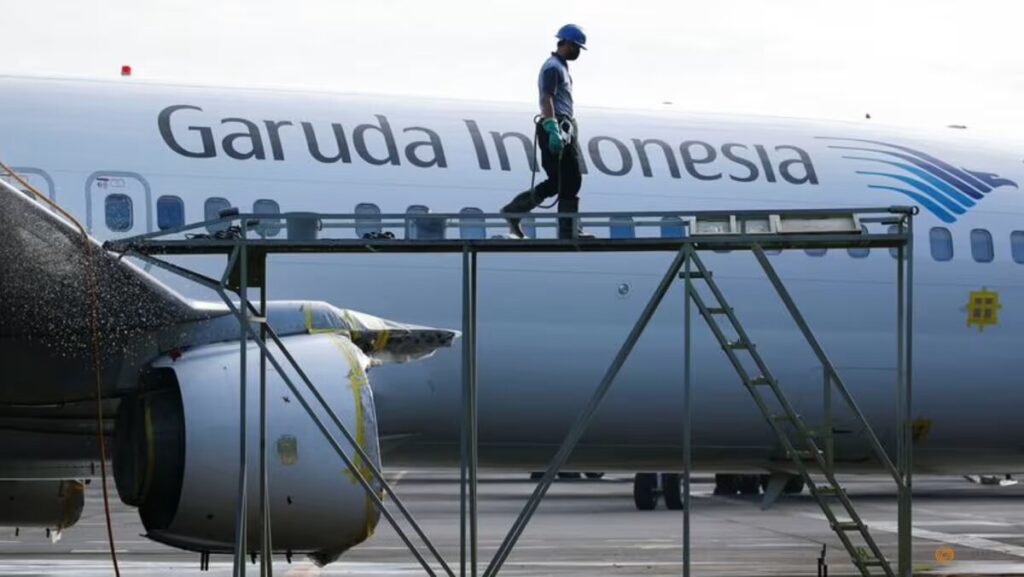Unleashing Sustainable Aviation: Garuda Indonesia’s Palm Oil-Blended Jet Fuel Triumph
Introduction
In a groundbreaking move towards sustainable aviation, Garuda Indonesia has soared to new heights by successfully completing a test flight using palm oil-blended jet fuel on their Boeing 737-800NG aircraft. The flight, covering over 130 km from Jakarta to Pelabuhan Ratu in Java, marks a pivotal moment in the airline’s commitment to environmental responsibility.
The Flight Test
Garuda’s Chief Executive, Irfan Setiaputra, proudly announced the completion of the test flight. The Boeing 737-800NG was fueled with a mixture containing 2.4% palm content, showcasing the airline’s dedication to exploring the potential of sustainable aviation fuel in their commercial operations. The successful round trip demonstrates the viability of palm-oil blended jet fuel as a green alternative in the aviation industry.
Fuel Production Technology
The palm oil-blended jet fuel utilized by Garuda was produced at PT Pertamina’s Cilacap refinery, a key player in Indonesia’s energy sector. Pertamina’s CEO, Nicke Widyawati, revealed that the fuel is crafted using hydroprocessed esters and fatty acid (HEFA) technology. Composed of refined bleached deodorized palm kernel oil, this innovative fuel not only meets aviation standards but also boasts lower emissions compared to traditional fossil fuels.
Environmental Impact and Sustainable Practices
Addressing environmental concerns, Nicke emphasized the environmental benefits of their palm oil-blended jet fuel. The fuel’s lower emissions play a crucial role in mitigating the environmental impact of air travel, aligning with global efforts to reduce carbon footprints in the aviation industry.
Comprehensive Testing
Prior to the actual flight, Garuda conducted extensive tests, including static and engine ground tests starting from July. This rigorous testing phase underscores the airline’s commitment to ensuring the safety, reliability, and efficiency of the palm oil-blended jet fuel before contemplating its widespread use.
Indonesia’s Green Energy Milestone
Nicke expressed optimism about the commercial viability of the fuel, hoping to market it for commercial flights. This move is hailed as a significant milestone in Indonesia’s green energy development, showcasing the country’s dedication to sustainable practices in the aviation sector.

Global Concerns and Commitment
However, it’s crucial to acknowledge that some countries, notably the European Union, express concerns about the environmental impact of palm oil production, particularly deforestation. Despite these concerns, Indonesia, as the world’s largest palm oil producer, is steadfast in its commitment to promoting the use of edible oils and decreasing reliance on crude oil imports.
Previous Endeavors
This recent success isn’t Garuda Indonesia’s first foray into sustainable aviation. In 2021, the airline conducted a similar test flight with the same palm oil-blended fuel on an aircraft manufactured by state-owned Dirgantara Indonesia. The flight journeyed from Bandung in West Java to the capital, Jakarta, further solidifying Indonesia’s commitment to exploring and embracing sustainable aviation practices.
Future Prospects
With the successful test flight under its belt, Garuda Indonesia is poised to delve deeper into the utilization of sustainable aviation fuel for its commercial fleet. Irfan Setiaputra hinted at a comprehensive study to determine the feasibility and potential scalability of integrating palm oil-blended jet fuel into regular operations.
Conclusion
In conclusion, Garuda Indonesia’s successful test flight using palm oil-blended jet fuel is a monumental stride towards sustainable aviation practices. The airline’s commitment to environmental responsibility, coupled with rigorous testing and technological innovation, positions them as a frontrunner in the global push for greener skies. As the aviation industry grapples with environmental challenges, Garuda Indonesia emerges as a beacon of hope, showcasing that sustainable aviation is not just a possibility but an imminent reality.